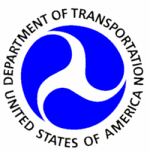Tue, Feb 22, 2011
Largest Non-Safety Related Fine Ever Levied Against An
Airline
 The U.S. DOT has assessed a civil penalty of $2 million against
Delta Air Lines for violating rules protecting air travelers with
disabilities. This civil penalty is the largest penalty ever
assessed against an airline by the Department of Transportation in
a non-safety-related case.
The U.S. DOT has assessed a civil penalty of $2 million against
Delta Air Lines for violating rules protecting air travelers with
disabilities. This civil penalty is the largest penalty ever
assessed against an airline by the Department of Transportation in
a non-safety-related case.
“Ensuring that passengers with disabilities receive fair
treatment when they fly is a priority for the Department of
Transportation,” said U.S. Transportation Secretary Ray
LaHood. “We take our aviation disability rules seriously and
will continue to enforce them vigorously.”
The DOT requires airlines to provide assistance to passengers
with disabilities while boarding and deplaning aircraft, including
the use of wheelchairs, ramps, mechanical lifts and service
personnel where needed. Carriers also must respond within 30
days to written complaints about their treatment of disabled
passengers, and specifically address the issues raised in the
complaints. In addition, airlines must properly code and record
their disability-related complaints in connection with required
reporting to the Department.
An investigation by the Department of Transportation’s
Aviation Enforcement Office of disability complaints filed with
Delta and DOT revealed many violations of the requirement to
provide assistance getting on and off the airplane. The
carrier’s complaint files also showed that it frequently did
not provide an adequate written response to disability complaints
from passengers. The Aviation Enforcement Office further found that
Delta also failed to properly report each disability complaint in
reports filed with the Department.
 Of the of $2 million penalty, $750,000 must be paid by the
carrier and up to $1,250,000 may be used to improve its service to
passengers with disabilities beyond what is required by law. Delta
may target up to $834,000 of the civil penalty amount toward the
development and implementation of an automated wheelchair tracking
system at the carrier's major hub airports. Up to $236,000 may be
used toward developing and distributing customer service surveys
for passengers with disabilities to rate Delta’s
accommodation services and provide specific feedback to the carrier
on how it can improve. In addition, up to $150,000 may be used to
expand audits of the carrier’s compliance with Air Carrier
Access Act rules and for consultation to help improve the quality
of Delta’s services to passengers with disabilities at
airports and up to $30,000 to enhance its website to improve air
travel accessibility. The actual costs of these improvements by
Delta will be significantly greater than the credited amounts.
Of the of $2 million penalty, $750,000 must be paid by the
carrier and up to $1,250,000 may be used to improve its service to
passengers with disabilities beyond what is required by law. Delta
may target up to $834,000 of the civil penalty amount toward the
development and implementation of an automated wheelchair tracking
system at the carrier's major hub airports. Up to $236,000 may be
used toward developing and distributing customer service surveys
for passengers with disabilities to rate Delta’s
accommodation services and provide specific feedback to the carrier
on how it can improve. In addition, up to $150,000 may be used to
expand audits of the carrier’s compliance with Air Carrier
Access Act rules and for consultation to help improve the quality
of Delta’s services to passengers with disabilities at
airports and up to $30,000 to enhance its website to improve air
travel accessibility. The actual costs of these improvements by
Delta will be significantly greater than the credited amounts.
More News
Circle To Runway (Runway Number) Used by ATC to inform the pilot that he/she must circle to land because the runway in use is other than the runway aligned with the instrument appr>[...]
Aero Linx: National Aviation Safety Foundation (NASF) The National Aviation Safety Foundation is a support group whose objective is to enhance aviation safety through educational p>[...]
At Altitude Of About 250-300 Ft Agl, The Airplane Experienced A Total Loss Of Engine Power On November 6, 2024, at 1600 central standard time, a De Havilland DHC-1, N420TD, was inv>[...]
From 2009 (YouTube Edition): Three Hour Flight Was 'Flawless' -- At Least, Until Mother Nature Intervened For anyone who loves the aviation business, this was a VERY good day. Afte>[...]
Also: AMA Names Tyler Dobbs, More Falcon 9 Ops, Firefly Launch Unsuccessful, Autonomous F-16s The Air Force has begun ground testing a future uncrewed jet design in a milestone tow>[...]
 ANN's Daily Aero-Term (05.05.25): Circle To Runway (Runway Number)
ANN's Daily Aero-Term (05.05.25): Circle To Runway (Runway Number) ANN's Daily Aero-Linx (05.05.25)
ANN's Daily Aero-Linx (05.05.25) NTSB Prelim: De Havilland DHC-1
NTSB Prelim: De Havilland DHC-1 Classic Aero-TV: The Boeing Dreamliner -- Historic First Flight Coverage
Classic Aero-TV: The Boeing Dreamliner -- Historic First Flight Coverage Airborne-NextGen 05.06.25: AF Uncrewed Fighters, Drones v Planes, Joby Crew Test
Airborne-NextGen 05.06.25: AF Uncrewed Fighters, Drones v Planes, Joby Crew Test



